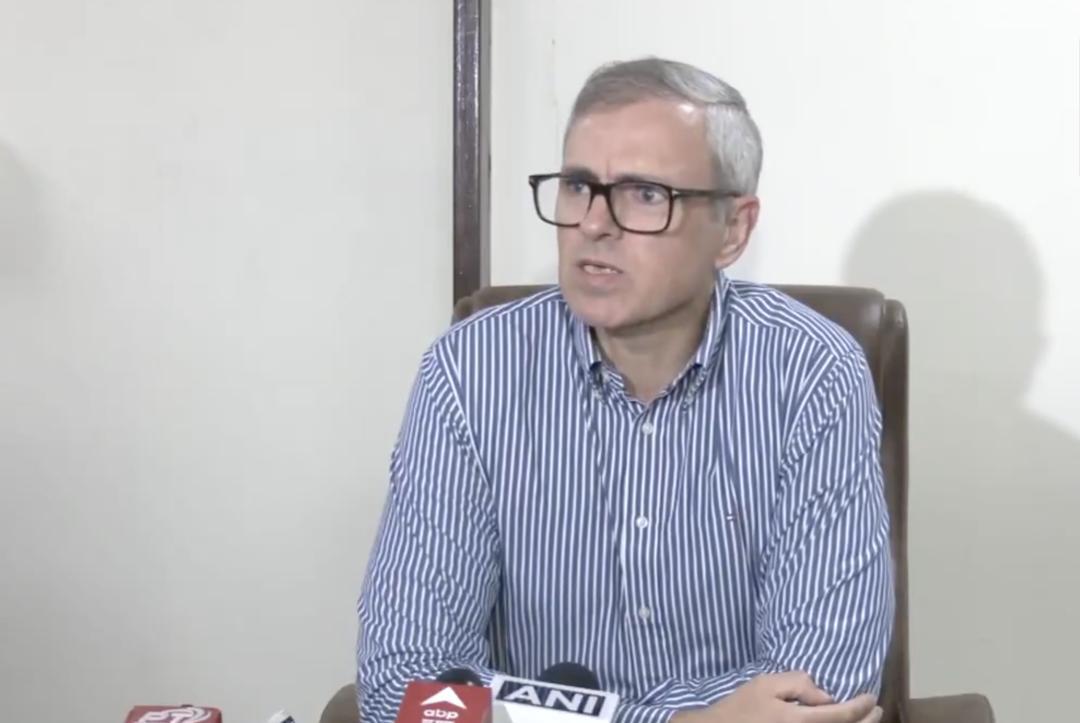
Why should I send water to Punjab?: J&K CM on canal proposal
The proposal to construct a 113 km-long canal to redirect surplus water from three western rivers of the Indus system in Jammu and Kashmir to Punjab, Haryana, and Rajasthan has sparked a heated debate in the country. At the center of the controversy is Jammu and Kashmir Chief Minister Omar Abdullah, who has questioned the need to send water to Punjab, citing the Indus Waters Treaty.
In a recent statement, Omar Abdullah expressed his reservations about the canal proposal, saying, “Why should I send water to Punjab? Punjab already had water under the Indus Waters Treaty.” He also raised questions about whether Punjab had ever provided water to Jammu and Kashmir when it was needed. This statement has drawn widespread attention, with many interpreting it as a reference to the long-standing water-sharing dispute between the two states.
The Indus Waters Treaty, signed in 1960, allocates the waters of the Indus River and its tributaries between India and Pakistan. Under the treaty, Pakistan is entitled to receive 20% of the waters of the Indus River, while India is allowed to use the remaining 80%. The treaty also established a Permanent Indus Commission to oversee the implementation of the agreement.
However, the treaty has been a source of tension between India and Pakistan over the years, particularly with regard to the sharing of water resources. Pakistan has long accused India of violating the treaty by constructing dams and diversion structures that affect the flow of water into Pakistan. India, on the other hand, has maintained that its actions are in compliance with the treaty.
In the context of the canal proposal, Omar Abdullah’s comments have raised important questions about the need to redirect water from Jammu and Kashmir to other states. While the proposal is intended to alleviate water scarcity in Punjab, Haryana, and Rajasthan, it is clear that the issue is more complex than simply sending water from one state to another.
One of the primary concerns is the environmental impact of the canal. The construction of the canal would require significant changes to the natural flow of the rivers, which could have devastating effects on the ecosystem. Additionally, the canal would likely displace communities and affect the livelihoods of thousands of people.
Furthermore, the proposal has been criticized for being a short-term solution to a long-term problem. Rather than addressing the root causes of water scarcity, the canal would simply redirect water from one area to another, without addressing the underlying issues of water conservation and management.
In addition to the environmental and social concerns, Omar Abdullah’s comments have also raised questions about the fairness of the water-sharing arrangement. While Punjab has been the primary beneficiary of the Indus Waters Treaty, Jammu and Kashmir has historically been left with a significant shortage of water. The canal proposal would only exacerbate this imbalance, further marginalizing Jammu and Kashmir.
In conclusion, while the canal proposal may seem like a straightforward solution to alleviate water scarcity in Punjab, Haryana, and Rajasthan, it is clear that the issue is much more complex. The proposal has raised important questions about the environmental and social impacts, as well as the fairness of the water-sharing arrangement. As the debate continues, it is essential that all stakeholders engage in a transparent and inclusive discussion about the future of water resources in the region.





